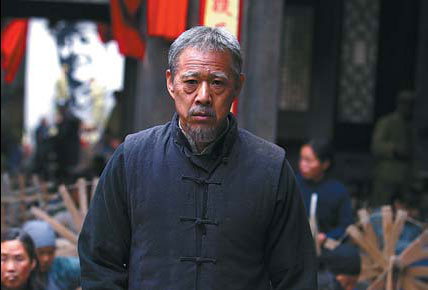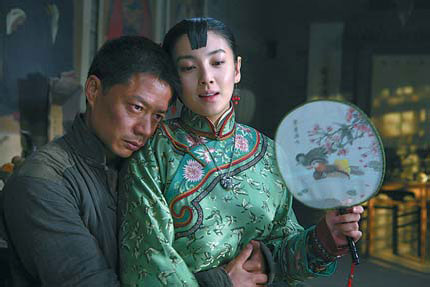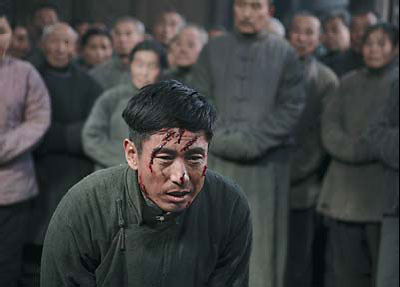





A film adaptation of the literary classic White Deer Plain condenses the lives of 20 characters at a formative time in China's history. Liu Wei in Beijing learns more.
Related: Good adaptation of epic novel
Wang Quan'an first read White Deer Plain when he was a student at Beijing Film Academy. The family saga set in Shaanxi province features plenty of history and sex.
He did not expect that years later he would direct the first film based on the novel. Many filmmakers, including Wang himself, have considered White Deer Plain to be a novel that could not be successfully adapted into a film. "The book is so intense and complicated that it is easier to adapt it into 10 films instead of one," he says.
A must-read for anyone who wants to understand the country and its people better, the book traces the ups and downs of two rural clans in the first half of the 20th century in Shaanxi.
Related: 'White Deer Plain' Set for Sept. 13 release
Winner of China's top literature honor, the Mao Dun Literature Prize, it has been a popular story among Chinese directors, Zhang Yimou and Chen Kaige included.
The film was released in China on Sept 15, 20 years after the book was published in 1993, eight years after Wang was involved in the project and seven months after the film won a Silver Bear in the Berlin festival.
At a recent seminar to mark the 20th anniversary of the book, writer Chen Zhongshi gave the film 95 marks.
"It is the highest score I have ever gotten since my first day at school," Wang says.
Related: Historical novel made into movie
Wang, 47, was first involved in the project when Lu Wei, scriptwriter of Chen Kaige's iconic Farewell My Concubine, found him and suggested they make the film together. The budget then was only 30 million yuan ($4.6 million).
At that time Wang had made only two low-budget art-house films. He recalls that he was at first "not ambitious to handle an epic", but White Deer Plain was so tempting a subject that they finished a script.
However, the authorities did not approve of it. So Wang wrote one on his own, but the main investor, Xi'an Film Studio, was short of money at the time.